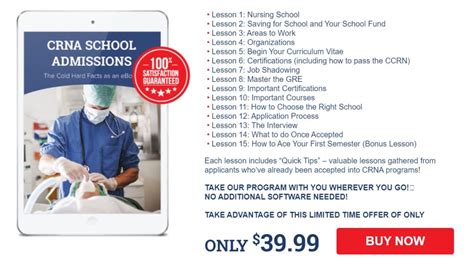Introduction
If you’re considering a career as a Certified Registered Nurse Anesthetist (CRNA), Barry University’s Doctor of Nursing Practice (DNP) program in Nurse Anesthesia is an excellent choice. With its rigorous curriculum and experienced faculty, the program prepares graduates to excel in this high-demand field. This comprehensive guide provides an overview of the admission requirements, application process, and curriculum for Barry University’s CRNA program, empowering you to make an informed decision about pursuing your CRNA aspirations.

Admission Requirements
To be eligible for admission to Barry University’s CRNA program, you must meet the following minimum requirements:
- Bachelor’s degree in nursing from an accredited program
- Registered Nurse (RN) licensure in good standing
- Minimum of two years of critical care nursing experience
- Minimum cumulative GPA of 3.5 on a 4.0 scale
- Three letters of recommendation, including one from a nurse manager
Additional Considerations
While not required, the following factors are considered during the admission process:
- Experience in cardiac or cardiothoracic nursing
- Experience in trauma or emergency nursing
- Research experience or publications
- Involvement in professional organizations
Application Process
The application process for Barry University’s CRNA program is highly competitive. To apply, you must submit the following:
- Online application
- Official transcripts
- Three letters of recommendation
- Resume
- Personal statement
- Proof of RN licensure and critical care experience
The application deadline is typically in January, with interviews conducted in the spring.
Curriculum
Barry University’s CRNA program is a three-year, full-time program that includes both didactic and clinical coursework. The curriculum is designed to provide a comprehensive understanding of advanced nursing theory and practice, with a focus on anesthesia care.
Didactic Coursework
The didactic portion of the program includes courses in:
- Advanced pharmacology
- Advanced pathophysiology
- Principles of anesthesia
- Nurse anesthesia pharmacology
- Clinical pharmacology
- Nurse anesthesia pathophysiology
- Nurse anesthesia equipment management
- Nurse anesthesia research methods
- Introduction to nurse anesthesia practice
Clinical Rotations
The clinical portion of the program consists of approximately 2,700 hours of supervised anesthesia practice in a variety of settings, including:
- Operating rooms
- Cardiac catheterization labs
- Pain management clinics
- Ambulatory surgery centers
Career Outlook for CRNAs
The demand for CRNAs is expected to grow rapidly in the coming years due to the aging population and the increasing need for anesthesia services. According to the Bureau of Labor Statistics, employment of CRNAs is projected to grow 28% from 2021 to 2031, much faster than the average for all occupations. The median annual salary for CRNAs in May 2021 was $189,890.
Motivation for Becoming a CRNA
There are numerous motivations for pursuing a career as a CRNA, including:
- High earning potential: CRNAs are among the highest-paid nursing professionals.
- Job security: The demand for CRNAs is expected to continue to grow in the coming years.
- Intellectual stimulation: CRNAs play a critical role in the perioperative care of patients, requiring a deep understanding of anesthesia care and medical knowledge.
- Autonomy: CRNAs have a high degree of autonomy in their practice, working independently to administer anesthesia and monitor patient recovery.
- Patient care: CRNAs play a vital role in improving patient outcomes by providing safe and effective anesthesia care.
Common Mistakes to Avoid
When applying to Barry University’s CRNA program, it’s important to avoid the following common mistakes:
- Not meeting the minimum admission requirements: Ensure you meet all the eligibility criteria before applying.
- Submitting an incomplete application: Take the time to carefully complete all parts of the application, including the personal statement and letters of recommendation.
- Not preparing adequately for the interview: Prepare thoroughly for the interview by researching the program and practicing your answers to common questions.
- Overstating your qualifications: Be honest and accurate in representing your experience and qualifications on your application.
- Not following up after submitting your application: After submitting your application, follow up with the program to inquire about the status of your application and express your interest.
Conclusion
Barry University’s CRNA program offers a world-class education that prepares graduates for a successful career in nurse anesthesia. By meeting the admission requirements, completing the application process effectively, and excelling in the curriculum, you can position yourself for success in this rewarding field. The high earning potential, job security, intellectual stimulation, autonomy, and patient care impact make becoming a CRNA a highly sought-after career path. By avoiding common mistakes and embracing the motivations for pursuing this profession, you can take the first step towards achieving your CRNA aspirations.
